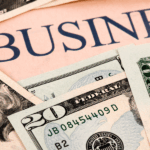Recent market movements highlight the resilience of key financial instruments, with the Vanguard S&P 500 ETF reaching unprecedented levels despite ongoing economic uncertainties. Investors focus on corporate performance as a significant driver of market stability. Company earnings and expert forecasts continue to provide essential insights into securing financial growth in turbulent times.
Delta Air Lines has been a focal point in discussions about market resilience, revealing an unexpected boost in expected earnings. The airline forecasted earnings between $1.60 and $1.90 per share for the fourth quarter, surpassing analyst predictions of $1.65 per share. Previously, Delta’s quarterly performances seemed unfazed by external economic disruptions, supporting overall investor confidence. The continued upward trend substantiates prior market analyses, which emphasized the airline’s ability to remain steady amidst fluctuating economic conditions.
How do Delta’s Q3 results impact market perceptions?
Delta’s recent Q3 report supports optimistic market sentiments, demonstrating profits of $1.71 per share, exceeding expected earnings by $0.18. With revenues hitting $15.2 billion—higher than anticipated—investors find reassurance in the airline’s adept financial management. Such results reinforce the projected annual earnings reaching $6 per share for fiscal 2025, thus fortifying Delta’s position within the S&P 500.
Can other major companies follow Delta’s lead?
PepsiCo (NASDAQ:PEP) expressed similar strong performance, reporting Q3 earnings above estimates at $2.29 per share alongside revenues of $23.9 billion. PepsiCo’s slightly muted stock movement, rising by less than 1% premarket, contrasts Delta’s substantial 7% hike, underscoring variance in investor responses across different sectors. Despite the differences, these disclosures generally bolster S&P 500 stability, contributing to its upward trajectory.
Transport Secretary Sean Duffy addressed concerns about operational disruptions within the airline industry, noting a slight uptick in transportation delays. Employment conditions further exacerbated the situation, as air traffic controllers worked unpaid, causing increases in absences. Despite these impediments, CEO Ed Bastian stated there are “no impacts at all” on Delta’s operations yet.
CEO Ed Bastian remarked, “If the government shutdown drags on too long, it’s likely to affect the airline industry as well as the general economy.”
Amidst the governmental impasse, Delta’s admission that significant economic strains have yet to influence their business highlights the delicate balance between corporate strategies and broader economic adversities. These revelations add layers of complexity to market predictions and analyses.
“No immediate impacts have been noticed on Delta’s business,” Bastian assured, calming potential investor concerns.
Looking ahead, investors will keenly observe comparable entities to evaluate how adaptive strategies affect stock performance amidst unpredictable government actions. Corporate earnings and forecasts remain pivotal, providing crucial reference points amid market volatility.










